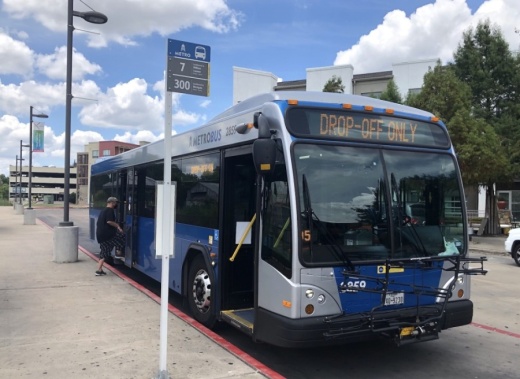Capital Metro is not funded through property taxes. To pay bus operators and mechanics, build new infrastructure, maintain its vehicles and cover other budget expenses, Capital Metro largely relies on a 1% sales tax levied throughout the area it serves.
That sales tax revenue took a significant dive this spring as businesses struggled in the wake of government shutdown orders intended to keep the public safe from the spread of COVID-19. However, sales have rebounded since April.
When the Capital Metro board of directors voted to adopt the agency's budget for fiscal year 2020-21 in a 6-0 vote Sept. 28, the sales tax revenue projections for the upcoming year landed squarely between Marneweck's best- and worst-case projections.
Capital Metro projects it will bring in $251.7 million in sales tax revenue during the FY 2020-21 budget cycle, a $14 million drop from the number it forecasted last year. In June, Marneweck estimated the revenue for the next budget cycle could come in somewhere between $245.1 million and $264.4 million.
A much smaller percentage of Capital Metro's revenue comes from fares paid by passengers. In FY 2020-21, the agency projects it will bring in $15 million, down from $22.5 million forecasted for FY 2019-20, due to the continued effects of COVID-19 on ridership.
Marneweck told the board of directors Sept. 28 that a few factors have allowed Capital Metro to weather this loss in revenue without significantly affecting operations. The agency was in a strong financial position heading into the pandemic, she said. It also has cut costs—instituting a salary and wage freeze while setting aside some projects it will pursue should economic conditions turn around.
Additionally, Capital Metro received a $101.9 million federal grant to help offset revenue losses during the pandemic.
Overall, the $390.5 million FY 2020-21 budget is down 3.27% from FY 2019-20, and operating expenses—money spent on vehicles, salaries, fuel and other ongoing expenses to run the transportation network—are down 3.4%.
Capital Metro is set to spend $106.4 million on capital projects this year. That number includes $73 million to fund certain aspects of Project Connect—the plan in front of voters this November to build three new rail lines in Austin, add bus routes and improve existing service.
The $7.1 billion plan being presented to voters would include about $3.85 billion in local funding. Much of that would come from the city of Austin by way of a $0.0875 property tax rate increase.
Capital Metro's funding in the upcoming fiscal year budget would include paying for preliminary design and environmental review for the light rail and commuter rail lines, improvements to the existing Red Line commuter rail and project development for new MetroRapid bus lines.
Other capital projects include the downtown rail station set to open early in 2021, construction of the new $24 million Broadmoor Red Line station in North Austin taking place over the next two years and the continuation of replacing diesel-fueled buses with electric models. Capital Metro put 12 electric buses into service in 2020 and plans to introduce 71 more over the next five years.





